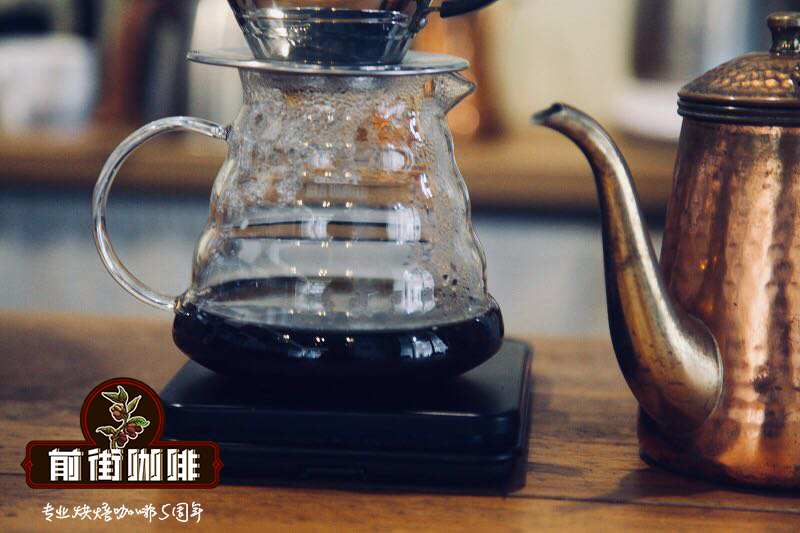Peruvian coffee bean brand APROCASSI Peruvian coffee? is Peruvian black coffee good?

Professional coffee knowledge exchange more coffee bean information please follow the coffee workshop (Wechat official account cafe_style)
Peru APROCASSI
Although we have been following their work closely for some time, 2019 marks the first official year of Atlas's relationship with APROCASSI (Asociacion de Productores Cafetaleros Solidarios de San Ignacio). The association was founded nearly 20 years ago in 2000 as a protest against mining companies that flocked to the region to collect precious metals. In order to protect their farmland, a small group of farmers United and formed an association called Aprucasil.
Twenty years later, APROCASSI continues to overcome various difficulties with great determination and organizational strength, while improving quality and establishing membership. Today, the Association has two main receiving stations in Cahamaca, with the original office in San Ignacio and the new facility in Jain. They have a total of 35 bases, each with 15-18 members, with a total of 601 producers harvested in 2019. Each base is a community center that serves as a receiving point for specific community members and a centralized place for meetings with APROCASSI staff and on-site technicians. Each base has a president who is reunited with APROCASSI staff at least three times a year and receives training and other information materials. The Chair will then disseminate this message to members in their respective bases.
APROCASSI specializes in selling certified coffee. 70 per cent of the 70 containers they plan to sell this year are FTO certified. One of the main objectives of the co-operatives this year is to increase production. Most producers have an average yield of 18 qq per hectare, and they want to increase their yield to 25 qq per hectare. They hope to achieve this through better fertilization techniques and allowing agrotechnicians to spend more time with producer members who provide assistance in the field. In addition, the Association attaches great importance to the diversification of products, such as honey, cocoa and fish farming.
Finally, APROCASSI also focuses on allowing young people to drink coffee and diversifying women's income. Many of the key employees are under the age of 35, including General Manager Abdias, Logistics Manager Larisa and their internal cupping team. At the field level, APROCASSI recently launched a "Jovenes group" (youth group) to train young coffee producers (or children of members) in agriculture. In 2018, the international non-governmental organization Rikolto worked closely with young producers of APROCASSI to teach them materials for the CQI secondary processing course. They also leave a lot of manure in the field so that producers can taste how fermentation and processing affect the quality of cups. Women producers are encouraged to diversify their income through two projects; the first is a coffee shop called Saja in San Ignacio, where the Aprucasian Women's Group (APROCASSI women's group) sells and prepares roasted coffee. In addition, this year, cooperatives also provide beekeeping education for women and provide materials and education to enable them to produce their own certified organic honey.
END
Important Notice :
前街咖啡 FrontStreet Coffee has moved to new addredd:
FrontStreet Coffee Address: 315,Donghua East Road,GuangZhou
Tel:020 38364473
- Prev

Ethiopia Humbela Akabi Farm Coffee good introduction to Humbela Akabi Farm
For more information on coffee beans, please follow Coffee Workshop (Wechat official account cafe_style) Akrabi is a coffee trader in Ethiopian Ahmaric, which seems to be suitable for coffee traded through the Ethiopian Mercantile Exchange (ECX). But unlike previous ECX batches, traceability was cancelled shortly after it was obtained. these batches have a historical record.
- Next

Uganda Luwenzori Coffee Farmers Cooperative introduces Uganda Luwenzo Coffee
Weixin Official Accounts cafe_style Rwenzori Farmers Cooperative Union (RFCU) is an umbrella cooperative that produces Fairtrade vanilla, Fairtrade cocoa and naturally processed Fairtrade Arabica coffee in the Rwenzori Mountains of western Uganda.
Related
- Beginners will see the "Coffee pull flower" guide!
- What is the difference between ice blog purified milk and ordinary milk coffee?
- Why is the Philippines the largest producer of crops in Liberia?
- For coffee extraction, should the fine powder be retained?
- How does extracted espresso fill pressed powder? How much strength does it take to press the powder?
- How to make jasmine cold extract coffee? Is the jasmine + latte good?
- Will this little toy really make the coffee taste better? How does Lily Drip affect coffee extraction?
- Will the action of slapping the filter cup also affect coffee extraction?
- What's the difference between powder-to-water ratio and powder-to-liquid ratio?
- What is the Ethiopian local species? What does it have to do with Heirloom native species?

